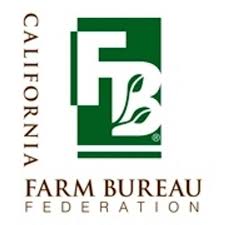 The House of Representatives was expected to attempt again this week to pass immigration legislation that includes provisions on border security, a program for agricultural employees, the mandatory electronic employment verification system known as E-Verify, and that prevents separation of families at the border.
The House of Representatives was expected to attempt again this week to pass immigration legislation that includes provisions on border security, a program for agricultural employees, the mandatory electronic employment verification system known as E-Verify, and that prevents separation of families at the border.
This week's activity follows on the heels of a vote last week in which the House failed to pass immigration legislation sponsored by House Judiciary Chairman Bob Goodlatte, R-Va.
Following that vote, California Farm Bureau Federation President Jamie Johansson said CFBF would work with Congress to resolve the longstanding inadequacies in agricultural immigration programs that have contributed to chronic employee shortages on farms and ranches.
Urging Congress to forge a solution that will work well for farmers, ranchers and their employees, Johansson said CFBF "will advocate for an agricultural visa program that would accommodate people who want to enter the United States legally to do farm work, and in large enough numbers to ease the shortages farmers have experienced."
Johansson said a new program "must also recognize our current, highly skilled immigrant employees and help them gain proper documentation."
California farmers continue to report difficulties in hiring enough qualified people for agricultural jobs.
Ranjit Davit, a cling peach grower in Live Oak, said even though his crop appears a little lighter this year, he still expects to be short of employees during the height of harvest in August.
"It's going to be pretty tight," Davit said, noting that employment costs represent 70 percent of the cost of growing peaches.
"Every year, more growers are jumping out of the business into other commodities," said Davit, chairman of the California Canning Peach Association. "Our commodity is not the only commodity in trouble; row crops have their share and even though nuts are pretty mechanized, they do require some percentage of labor."
San Joaquin County winegrape grower Bruce Fry said he's paying attention to what is happening in Congress, and that he's counting on lawmakers to find legislative solutions to the employee crisis.
"Hopefully, our members of Congress will do something," said Fry, noting that he is looking to solutions such as mechanization to help provide the labor that is needed for his winegrapes. "Who knows if they will pass something related to immigration. They tend to wait for a crisis to happen, then they pass something, but this has been a crisis for a long time."
Also in Washington last week, the House passed its version of the 2018 Farm Bill, the Agriculture and Nutrition Act of 2018, by a vote of 213-211. The House bill authorizes federal farm policy programs affecting conservation, nutrition, commodities, trade, research, rural development and more. The Senate was expected to take up its version, S. 3042, the Agriculture Improvement Act of 2018, this week.
CFBF Federal Policy Manager Josh Rolph said analysts expect the Senate legislation to pass with broad, bipartisan support.
"Moving forward to reconciliation and conference is going to be the trick, because there are significant differences between the two bills that are outside of the scope of agriculture," Rolph said. "The big one they will have to reconcile is nutrition and SNAP (Supplemental Nutrition Assistance Program), and the other difference is overall cost. The Senate bill costs $1.4 billion over the baseline and the House bill saves $1.5 billion, leaving a nearly $3 billion difference that will need to be addressed."
(Christine Souza is an assistant editor of Ag Alert. She may be contacted at csouza@cfbf.com.)
Reprinted with permission: California Farm Bureau Federation








